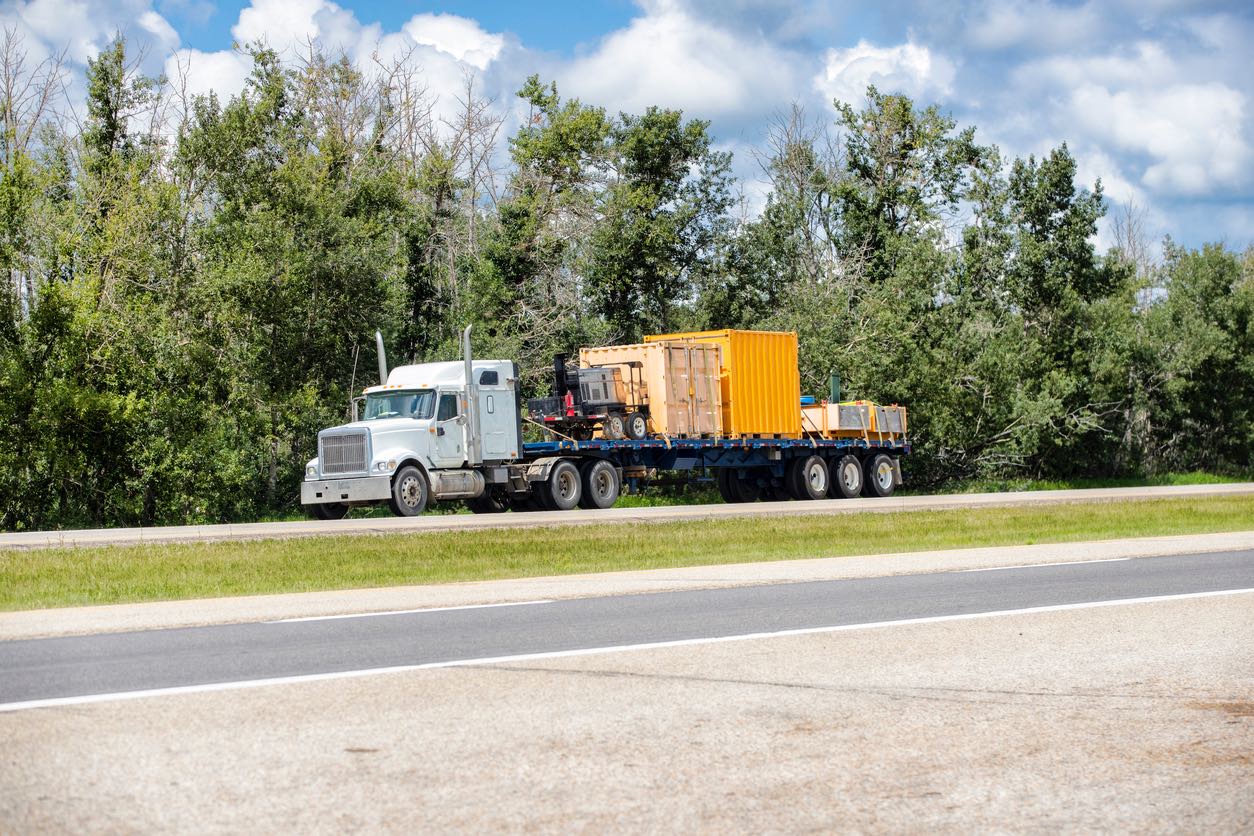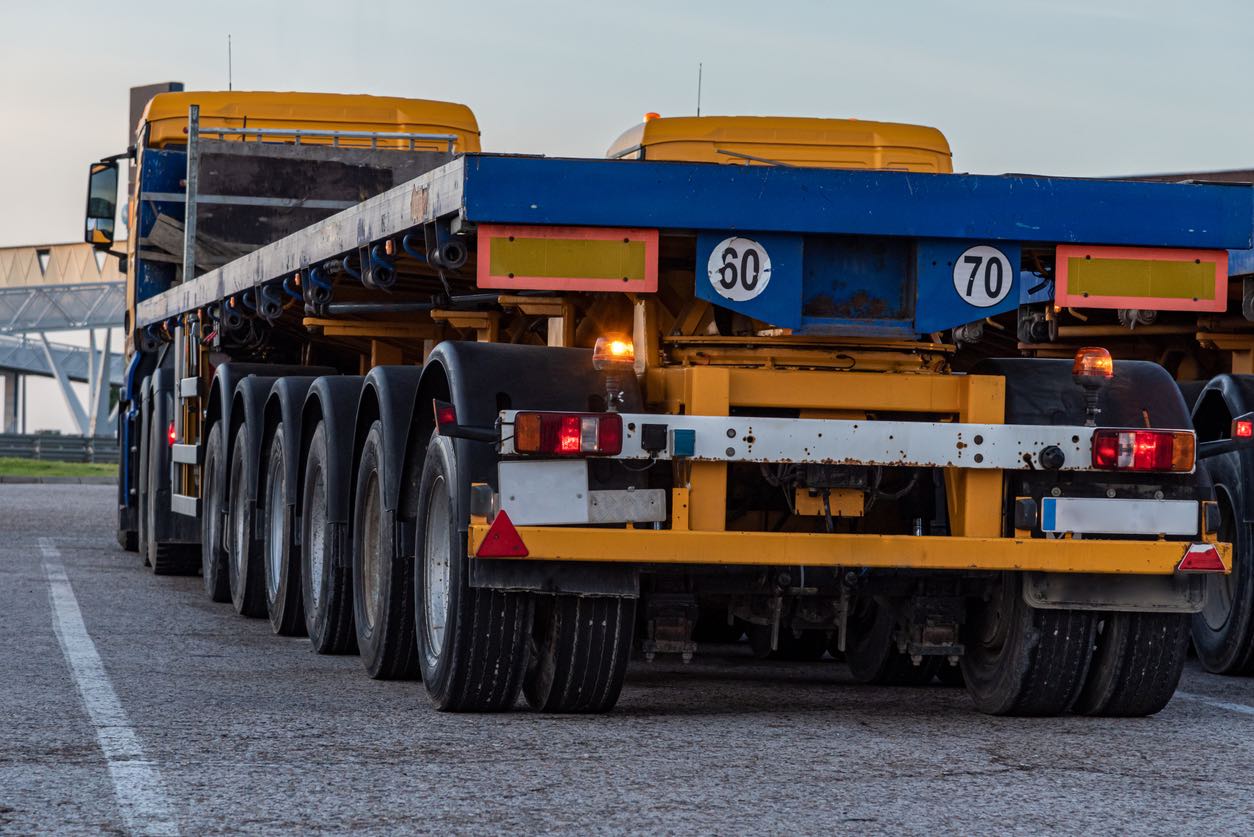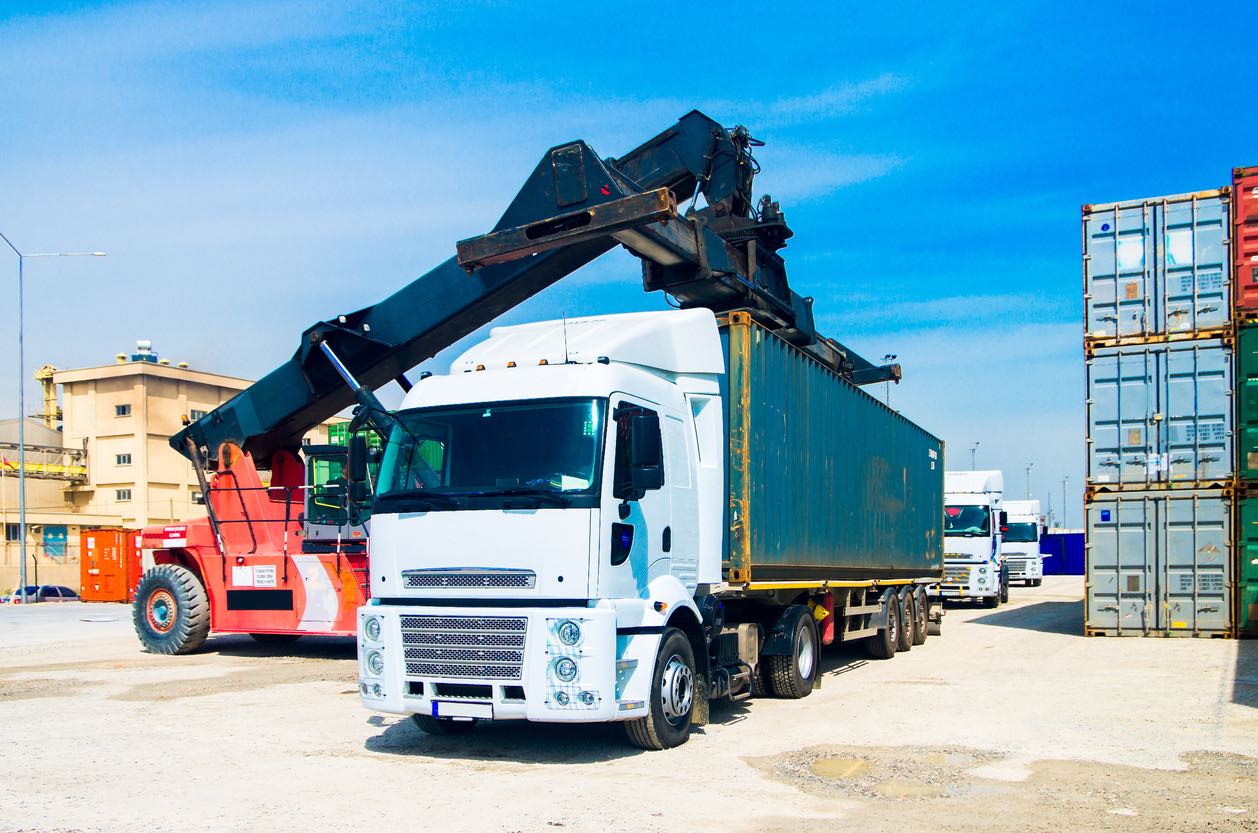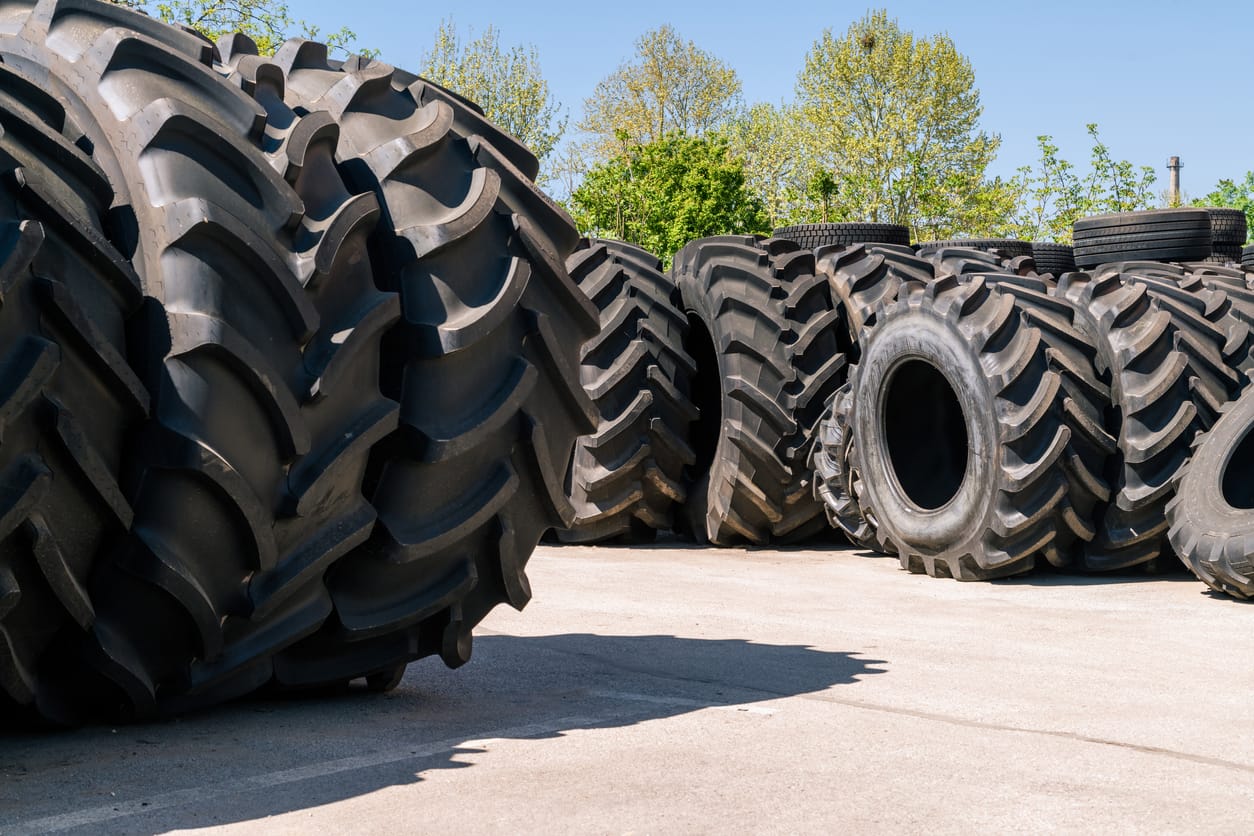Heavy machinery is essential in the rapidly developing fields of construction, landscaping, agriculture, and many other industries. These industries need equipment that can survive the test of time and provide top performance because of their demanding requirements and constantly shifting environments. The machinery is not simply a tool for enterprises working in these areas; it serves as the foundation of their business, ensuring that projects are executed effectively and on time.
The crucial choice that every company in these industries must make is whether to buy brand-new machinery or go with secondhand equipment. Both options have advantages and possible disadvantages of their own. New equipment is expensive and frequently comes with warranties, but it also boasts the newest technology. While old equipment offers a more affordable alternative, the new owner may not be familiar with its past. This choice involves weighing operational effectiveness, long-term value, and return on investment in addition to cost.
This article seeks to clarify the numerous benefits of selecting used heavy equipment. Understanding the possible advantages of secondhand machinery becomes essential in a world where strategic investments have the power to make or destroy a company. We will dig deeply into the material and intangible advantages that secondhand equipment may provide to a company, offering knowledge that will help managers and owners make wise choices.

Every purchasing choice in the world of large machinery and equipment has significant financial ramifications. The significant cost savings that used equipment offers over new is one of the strongest justifications for doing so. New machinery might first be quite alluring due to its immaculate look and unaltered characteristics. This enchantment, however, frequently fades after just a few days of heavy use, as the equipment looks identical to its worn equivalents.
Financial Relief Right Away: Given the significant expenditures involved, purchasing machinery is not a choice that should be made hastily. Given its pristine condition and the promise of the newest features, the desire to choose brand-new equipment is natural. The glitter of brand-new equipment, however, soon wears off after a few demanding days on the job site. The equipment starts to look and feel worn due to scratches, dents, and the unavoidable wear and tear. Businesses may save a lot of money by purchasing old equipment, sometimes up to 25% or more off the original cost. This financial relief may be quite important, particularly for new firms or those with limited resources.
Comparable Results: Used equipment’s lower price does not equate to a performance sacrifice. In many cases, old equipment has undergone rigorous maintenance and servicing to guarantee top performance. Additionally, improvements in equipment technology take years to develop. Accordingly, a machine that is a few years old may frequently provide practically equal technological features and operating efficiency as the most recent model. As a result, businesses may profit from similar technical improvements and reach comparable production levels without having to fork over the high cost of brand-new equipment. Used equipment is a desirable option for many because of the balance between price and performance.

The variety of options available in the world of heavy gear and equipment may be both a benefit and a difficulty. Particularly in the used equipment market, there are several alternatives available that span many model years, styles, and technical advancements. This wide range of options guarantees that companies may choose equipment that perfectly suits their operating needs, financial limitations, and long-term expansion goals.
Various Model Years: The market for secondhand equipment is a gold mine of equipment from many eras. Businesses which purchase old equipment have the freedom to select from a variety of model years and generations rather than being limited to the most recent ones. This variety guarantees that customers will discover the ideal option for their particular requirements, whether they are searching for a time-tested model recognized for its dependability or a more modern model with a particular function. Furthermore, more recent, more complicated models could not always offer the same resilience or simplicity as older, simpler models.
Familiar Technology: The comfort with modern technology is one of the underappreciated benefits of secondhand equipment. Used machinery frequently has technology that the operator is familiar with, making the move easier. Because operators don’t need to get comfortable with completely new systems or controls, this familiarity can greatly shorten the training period. Since personnel can start the equipment up and running more quickly as a result of their knowledge, this can improve operational effectiveness and increase performance and production.

Every firm must take depreciation into account when investing in assets, particularly large machines. Assets lose value over time, which affects a company’s financial stability. But for new and old equipment, the pace of this reduction differs dramatically.
Immediate Value Retention: The fast and quick depreciation that new machinery experiences the moment it leaves the showroom is one of the biggest financial disappointments when buying it. This sharp loss in value is comparable to buying a brand-new automobile and seeing its value plummet the moment you drive it off the lot. Contrastingly, used equipment has already passed through the most difficult portion of its depreciation curve before being sold. This means that when companies buy secondhand gear, they are buying assets with a far greater value retention rate. Companies have the freedom to resell this equipment with little financial loss should it be necessary to change operations or pivot strategy, ensuring businesses stay adaptable in a volatile market.
Shrewd Investment: Every effective company plan revolves around investing in assets that have a high rate of return. Used equipment offers businesses the chance to recover a sizeable amount, if not more, of their initial investment should they chose to resell because of its slower rate of depreciation after resale. This financial edge involves making strategic decisions that improve a company’s bottom line, not merely looking at the numbers. Businesses who choose old machinery not only acquire usable equipment but also make a wise financial decision that will pay off in the long run. Choosing secondhand equipment becomes a decision that combines pragmatism and forethought in a world where financial responsibility is crucial.
Effective money management is essential in the highly competitive corporate world. The purchase of heavy gear is one of the biggest costs for sectors including construction, agriculture, and landscaping. When choosing brand-new models, these necessary instruments might swiftly drain a company’s financial resources. A systematic approach to these purchases, however, can result in better financial health. Businesses can benefit from improved cash flow by selecting used equipment over new, giving them the financial flexibility they frequently require to handle the market’s problems.
Financial Flexibility: Due of its sophisticated features and capabilities, heavy machinery sometimes has a high price tag. This substantial expenditure may put a burden on a business’s finances, particularly for new or small- to medium-sized businesses. However, firms may greatly lessen this expensive burden by using used equipment. Pre-owned equipment may provide organizations significant cost savings, often up to 50% or more when compared to new ones. Due to their ability to devote capital to other important areas, businesses may achieve balanced and sustained growth.
Allocation Strategy: Choosing to buy used older equipment has benefits beyond just financial gains. The money saved by forgoing the purchase of brand-new equipment might be wisely redistributed to promote development and innovation. For instance, the money saved may go toward growing the business’s operating capabilities, investing in cutting-edge technology, or recruiting qualified personnel. A corporation might position itself for long-term success by taking advantage of unanticipated market opportunities, launching new product lines, or entering new markets with the additional cash on hand.

The decisions made by corporations may have a significant influence on the environment in the modern world, when environmental issues are at the center of international conversations. The purchase of large machinery is one such choice. Businesses who use old equipment not only make a wise financial decision, but also move in the direction of a more sustainable future.
Reduced Demand for Manufacturing: Every piece of heavy machinery that is produced needs a sizable quantity of resources. The environmental impact of production is significant, from the raw materials used to the energy used. By opting to buy secondhand equipment, companies unintentionally lower the need for new manufacture. As fewer resources are harvested and processed as a result of this choice, less material waste is produced. Additionally, with less production, carbon emissions have significantly decreased, which has helped to minimize the total greenhouse impact and global warming.
Enhanced Utility: Utilizing items to the maximum extent possible before recycling or disposing them is emphasized by the circular economy idea. When a company purchases old machinery, they are effectively extending the life of that equipment and making sure it fulfills its function for as long as feasible. This lessens the demand for new items while also cutting down on waste sent to landfills. Knowing that a machine is being used to its full extent naturally makes one feel good. This decision is not only good for the environment, but it also reflects the moral obligation that companies have to use sustainable methods. Businesses demonstrate their commitment to a greener and more responsible future by optimizing the usability of their equipment.
The brand’s reputation is crucial in influencing purchases in the field of heavy machinery and equipment. Over time, trusted, inventive, and resilient companies have developed a legacy. Their devices are more than simply items; they are a result of extensive study, client input, and ongoing improvement. Businesses who purchase equipment from these well-known manufacturers are not only purchasing machinery; they are also purchasing a heritage of quality and dependability.
Trusted Performance: The persistent dedication to performance that distinguishes well-known companies in the heavy machinery industry, like Caterpillar, is one of their defining characteristics. These companies have been at the forefront of technical development, guaranteeing that their equipment performs at its best even under the most trying circumstances. Many pre-owned machines from these top brands still function efficiently and robustly, frequently exceeding more recent versions from lesser-known producers. The machines’ reliable functioning is evidence of the company’s commitment to excellence and innovation.
Assurance of Upkeep: The certainty of routine maintenance is a key benefit of choosing gear from reputable brands. These manufacturers are aware of how crucial regular inspections and prompt repairs are to the equipment’s longevity. A well-maintained equipment offers businesses more value for their investment since it works better and has a longer operating life. Additionally, well-known companies frequently have vast networks of service facilities and qualified experts, guaranteeing that assistance is always available should any problems develop. The brand’s focus to client happiness and trust is further demonstrated by its commitment to post-purchase service.

It is impossible to overestimate the importance of reputable suppliers in the area of heavy machinery and equipment. As the backbone of the sector, these suppliers make sure that companies have access to equipment that matches their operating requirements without sacrificing quality or performance. A reliable provider ensures that businesses have the assistance they require throughout the lifespan of their machines by offering both equipment and a relationship.
Quality Assurance: It is impossible to overstate the value of quality control in large machines. Businesses must be confident of the equipment’s operation and condition before making an investment in old machinery. Reliable vendors take this obligation very seriously. Every piece of equipment is painstakingly inspected to make sure it has been properly maintained and is in top functioning order. This meticulous procedure gets rid of all hazards and ensures that firms get equipment that lives up to or even surpasses their expectations.
Expert Advice: The heavy machinery industry is enormous and diverse. Navigating this terrain may be challenging for firms, particularly those that are starting out or growing. Here is when the knowledge of a trustworthy provider is useful. These vendors have in-depth understanding of the machinery they sell. They are knowledgeable about the subtle differences between various pieces of equipment and may offer priceless advice on the finest options for a business’s particular needs. This advice guarantees that companies make wise choices, enhancing their operations and return on investment.
The Verdict
Heavy equipment investment decisions—whether to buy new or used—are in fact complicated and involve weighing a number of factors. It might be tempting to fall for the first draw of brand-new equipment, with its gleaming exteriors and the promise of cutting-edge technology. However, there are enormous financial ramifications to such a choice. The high expenses connected with new equipment can put a strain on expanding organizations’ financial resources and perhaps prevent them from making other crucial investments. This is especially true for startups working on tight budgets.
Used heavy machinery, on the other hand, turns out to be a ray of hope for many. The advantages go well beyond merely cost reductions. Businesses may access a huge pool of machinery that has previously demonstrated its worth in the field by choosing secondhand machinery. This guarantees dependability and shortens the operator learning curve. Additionally, buying old equipment has significant environmental consequences. Choosing secondhand equipment is in line with the worldwide movement towards more environmentally friendly company practices in an era where sustainability is not only a slogan but a commercial requirement. In short, the benefits of secondhand equipment are not only many but also intricately linked to the larger objectives of corporate expansion and sustainability.

Ship A Car, Inc. has established itself as the go-to service provider throughout the United States in the complex world of logistics and transportation, particularly when it comes to heavy machinery. Their reputation is not just based on promotional promises, but also on a long history of dependability, timeliness, and safety. When companies spend a lot of money on heavy equipment, guaranteeing its safe transportation becomes crucial. To ensure that the equipment reaches its destination in the same condition as when it was delivered, Ship A Car, Inc. has created a reliable procedure throughout the years.
Beyond simply the actual transportation, Ship A Car, Inc. stands out for its all-encompassing commitment to customer care. Their staff, which is made up of seasoned specialists, is knowledgeable about the difficulties and complexities involved in shipping big gear. They prepare for problems in advance, from route planning to addressing particular machinery needs, guaranteeing a smooth and trouble-free experience for its clients. Additionally, because of their dedication to open communication, clients are always informed of the progress of their shipments. A lot of companies around the country like Ship A Car, Inc. because of their proactive approach and persistent dedication to quality.
Q: Is buying used heavy equipment a reliable option?
A: Absolutely. When purchased from a reputable source, used equipment can offer comparable performance to new machinery at a fraction of the cost.
Q: How do I ensure the used equipment I’m purchasing is in good condition?
A: It’s crucial to buy from a trusted supplier, conduct thorough inspections, and review the equipment’s maintenance history.
Q: What are the environmental benefits of buying used equipment?
A: Purchasing used equipment reduces the demand for new manufacturing, leading to decreased material waste and carbon emissions. It also maximizes the utility of a machine before it’s recycled.
Q: Are there financing options available for used heavy equipment?
A: Yes, many suppliers and financial institutions offer financing options for used equipment, making it easier for businesses to invest without straining their budgets.
Q: How does the resale value of used equipment compare to new ones?
A: Used equipment generally has a slower depreciation rate compared to new machinery. This means that businesses can often resell used equipment at a value closer to their purchase price.
Q: Why should I choose Ship A Car, Inc. for transporting my heavy equipment?
A: Ship A Car, Inc. is renowned for its safety, reliability, and timely deliveries. Their experienced team understands the intricacies of transporting heavy machinery, ensuring your equipment reaches its destination in pristine condition.
Q: How does Ship A Car, Inc. ensure the safety of my equipment during transportation?
A: Ship A Car, Inc. employs state-of-the-art equipment and trained professionals to handle and transport your machinery. They also offer insurance coverage, ensuring peace of mind for their clients.
Q: Can I buy used equipment from international suppliers?
A: Yes, many businesses import used equipment from international suppliers. However, it’s essential to be aware of import duties, regulations, and the equipment’s compatibility with local standards.
Q: How often should I service my used heavy equipment?
A: The frequency of servicing depends on the equipment’s usage and the manufacturer’s recommendations. Regular maintenance ensures optimal performance and longevity.
Q: Are there warranties available for used heavy equipment?
A: Some suppliers offer warranties for used equipment, while others might provide a limited guarantee. It’s essential to discuss warranty options with the supplier before finalizing the purchase.




